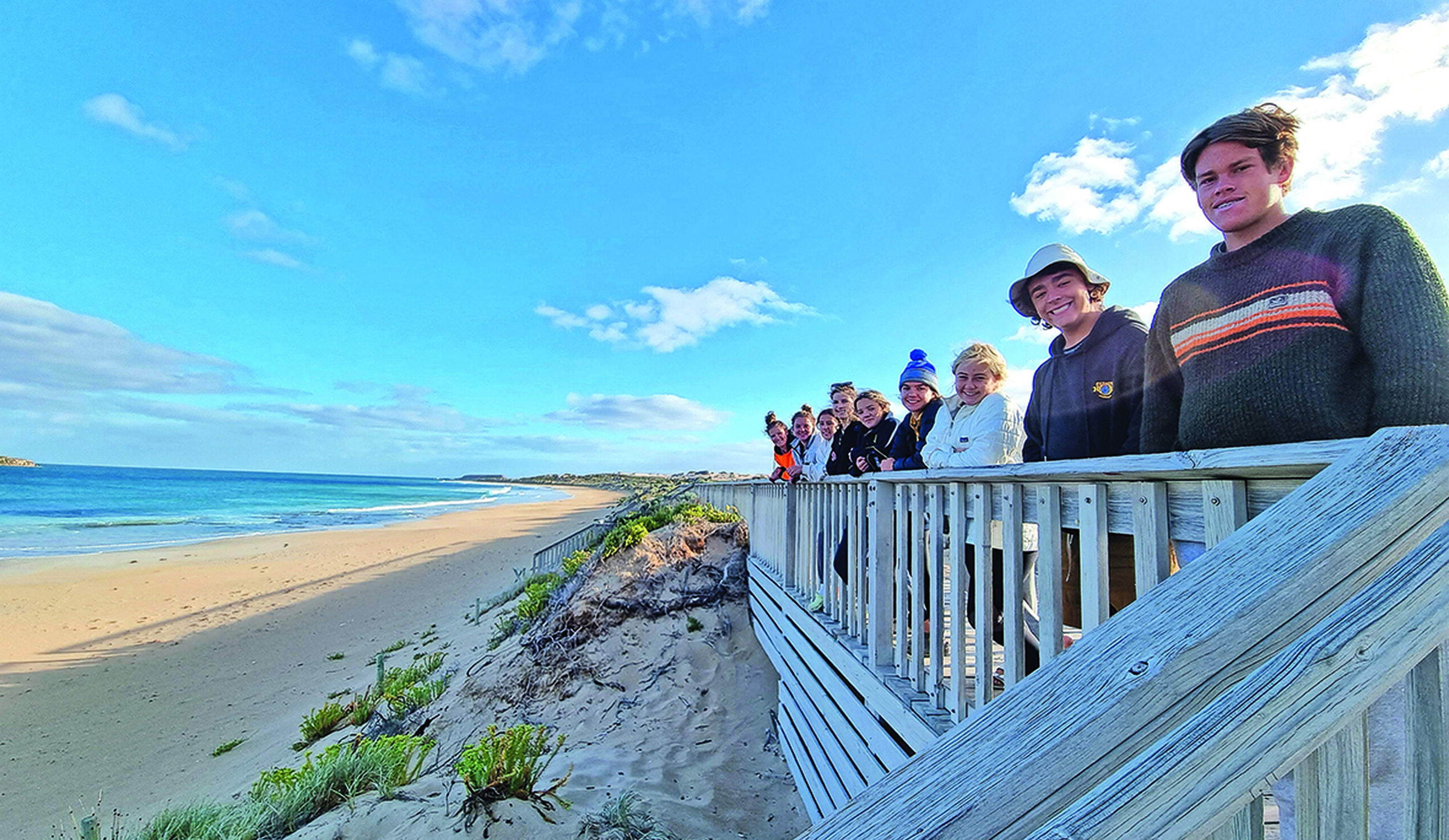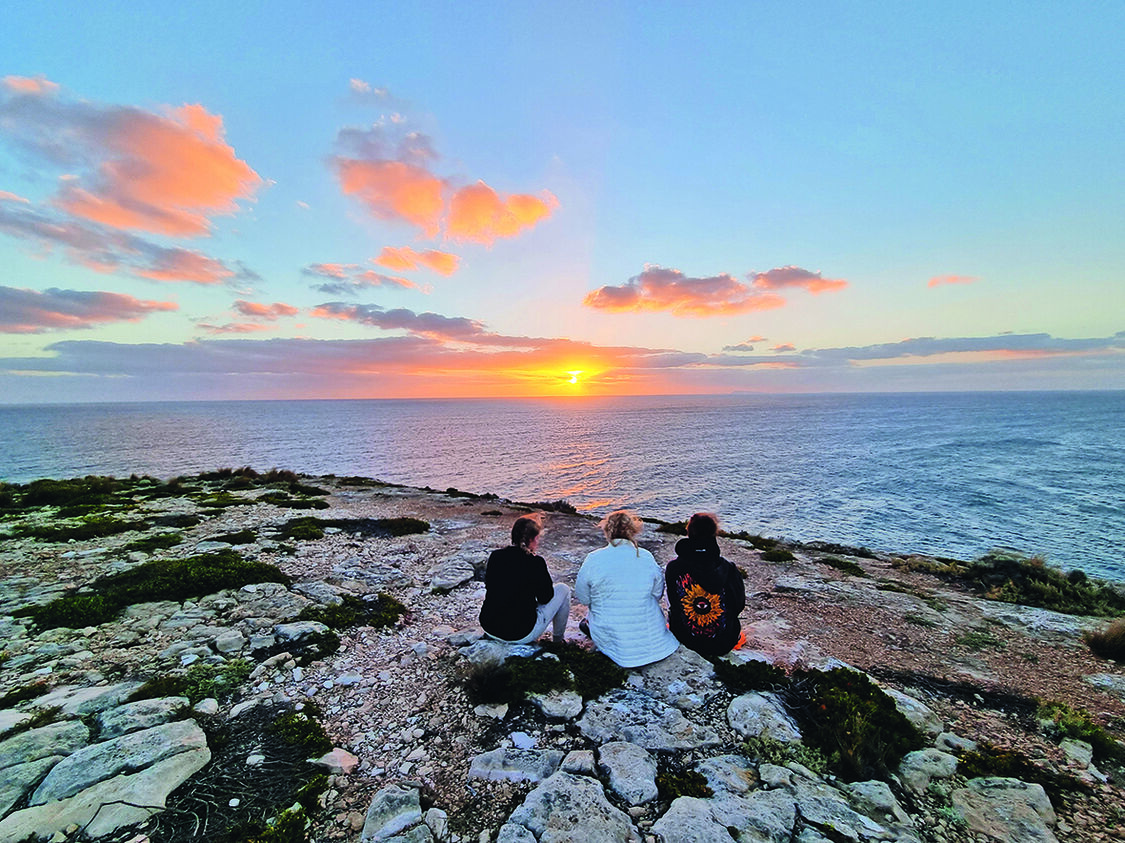31 May 2022
Connecting to outdoor environments, being immersed in nature, feeling the warmth of the radiant sun, getting submerged by powerful waves or staring at the magnificence of a mountain range. Where do you feel most at peace? Where do we go on our holiday breaks? Nothing is clearer in my mind than the interconnectedness between humans and nature, whether it be the energy, relaxation and clarity we gain from stepping outside and away from the addictive buzz of technology, or the impact that the most successful but invasive species has on the planet. Ironically, part of the solution, or at least the opportunity to scale the conversation, lies in social media.
The current response on the broad and complex topic of environmental issues in Australia is a complicated one. There are many factors that determine an individual’s response, view and willingness to take action. Many young people within the Pembroke School community are fiercely passionate about sustainability, climate change and a range of other issues from single-use plastic consumption, recycling, land clearing, ocean health and political agenda. There is also growing concern from people in older demographics who are equally concerned about these issues.
Australia’s political stance has shown an unwillingness to believe the science, see the evidence and make progressive changes. Recently at the COP26 conference in Glasgow, Australia received the prestigious award of Colossal Fossil by the Climate Action Network-International (CAN) due to its appallingly snail-paced movement within political objectives and goals. We were followed closely by the United States and the United Kingdom, in second and third place, respectively.
So what are we, Pembroke School, doing? There have been environmental action groups on both the Middle and Senior School campuses and educational action embedded within the Junior campus. In subjects such as Geography, Science and the International Baccalaureate’s Environmental Systems and Societies there is a range of sustainable approaches, student research, actions and initiatives. Outdoor Education at both Middle and Senior School year levels has a deep and rich sustainable philosophy whereby beach clean-ups, minimal impact approaches and rich discussions between staff and students occur. Students do feel moved by these experiences but are somewhat disenfranchised when they try to take further action, only to be stopped by systemic roadblocks. So whose responsibility is this crisis then? Sustainability is a cross-curriculum priority according to the Australian Curriculum and Assessment Reporting Authority (ACARA), right?
Positive changes are happening and there is still time. This bottom-up approach includes the grass roots movement of individuals such as the Student Strike for Climate, as well as conscientious businesses and savvy entrepreneurs who are taking this into their own hands. What can you do? We each have a vital part to play in interconnectedness around the globe. Start local, act global. Take each and every opportunity to be an informed consumer. Have difficult conversations and support environmentally aware businesses. Critical analysis of our personal actions is paramount. That fun-loving, outdoorsy Aussie persona we embody is at risk of global critique. When you ponder that next holiday getaway, also remember to realign your intrinsic values, beliefs and feelings about why we need to each take meaningful action to preserve this beautiful world in which we live.
Jessica Northcott
Teacher



